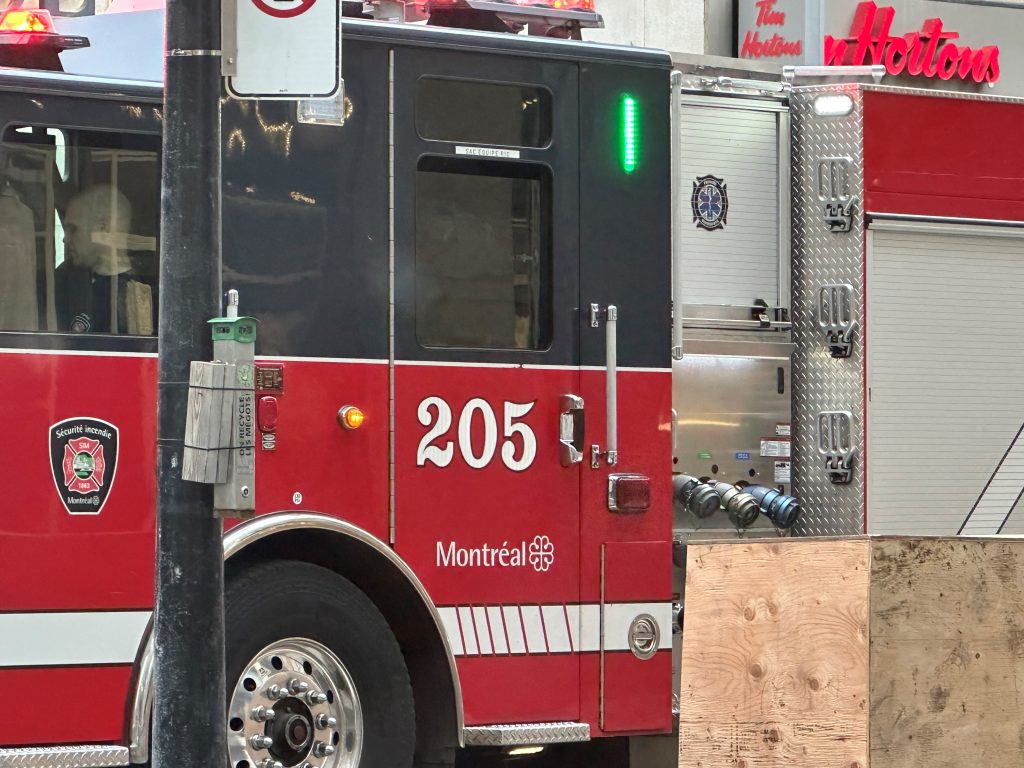Québec allocates $200 million over five years to support services for seniors in small RPAs

Posted January 30, 2024 5:21 pm.
Last Updated January 30, 2024 5:30 pm.
Quebec adds a measure to support the provision of care for seniors in RPAs.
The Minister responsible for Seniors, Sonia Bélanger, announced on Tuesday that a sum of $200 million over five years would be granted to small seniors’ residences of 30 units or less to deploy what is known as a personalized allowance to those offering services to residents who are not completely independent.
This measure will directly support the seniors themselves, since the care offered in RPAs is billed to them according to their needs, in addition to rent and meals. “One of the major benefits will be that residents will no longer have to pay for part of the services, which will reduce their financial burden,” the Minister pointed out at a press conference in Quebec City.
The addition of care, she argued, represents an increase in expenses that may prove unsustainable for many seniors “who would end up, if we don’t do it, in public CHSLDs.”
Lower contributions for seniors
The ultimate goal is to enable seniors to remain in their living environment. “People enter RPAs, they’re able to pay for room and board, but when an episode of illness or loss of autonomy occurs, they want to stay there, but unfortunately, not everyone can afford care.”
The gradual roll-out of the program, which will be entrusted to the CISSS and CIUSSS, will therefore result in a lower financial contribution from residents, with the government paying for part of the services that meet their needs.
Standardized rates
This new measure, implemented in collaboration with the Regroupement québécois des résidences pour aînés (RQRA) and the Réseau québécois des organismes sans but lucratif d’habitation (RQOH), will enable RPAs offering services such as bathing or administering medication to receive a fixed monthly allowance, based on residents’ needs.
The allowance, which will be calculated on an hourly basis, will eventually be available to over 650 RPPs, many of whom have seen their financial situation weakened in the current economic climate. This implementation follows a pilot project that helped define the program’s standards.
“From now on, services such as hygiene support, help with dressing, and medication administration will be treated the same, whether the senior receiving them lives in Granby or Rouyn. The various procedures and the hourly rate paid to perform these procedures will now be standardized and nationalized throughout Quebec,” enthused RQRA President and CEO Marc Fortin, who was at the Minister’s side.
Local flowers
He was also pleased to note that this measure will also enable RPA professionals to carry out service needs assessments themselves, “thus avoiding the delays and complexity of regional execution”. He recalled that over the past decade, “a series of regulatory obligations, soaring costs, inflation, a shortage of manpower, all coupled with the pandemic and a significant rise in interest rates have forced the closure of more than 1,000 RPPs”.
For his part, André Castonguay, Director of the Réseau québécois des OSBL d’habitation, also applauded Quebec’s decision, calling it “a good first step that we can only hope will be extended to all community RPAs that provide services and to all their residents”.
“This measure is all the more welcome for low- and modest-income seniors who cannot afford to pay for additional services that have become necessary for their conditions. These people make up the vast majority of residents in non-profit RPPs,” he said, also taking part in the announcement.
Reacting to the announcement in a press release, Réseau FADOQ had nothing but good things to say, pointing out that it had been calling for such measures for a long time, and that they would benefit both seniors and RPPs.
Its president, Gisèle Tassé-Goodman, said she believed these measures “will help stop the hemorrhage of RPA closures, particularly outside major centers and in remote areas.”
Minister Bélanger herself expressed the hope that this measure would help “avoid closures, which are very destabilizing for seniors”. She maintains that this measure “will prevent many seniors from having to move, uprooting them from their living environment and often from their community, and will reduce their financial burden.”
Negative reactions
An entirely different tone of voice came from Québec solidaire, whose spokesperson on the subject, Christine Labrie, expressed the opinion that “this program should be reserved for non-profit residences, and the Minister should set up a program to convert private RPAs into NPOs. (…) What I see today is wishful thinking on the part of the Minister, who continues to invest in the wrong business model.”
The Syndicat québécois des employées et employés de service (SQEES-FTQ) was not pleased either, saying it welcomed the new program “with skepticism”. The union deplores the fact that nothing in the announcement addresses the problem of labor shortages.
The union also questions the new fee schedule for care offered to seniors, wondering whether “this fee schedule will maintain the low wages we know in RPAs”. The SQEES-FTQ, the largest union in RPAs, “deplores the fact that we were not consulted before today’s announcement.”
For the time being, the first phase targets category 3 and 4 RPPs with 30 units or less. Category 3 RPAs are those whose service offer includes at least one personal assistance or nursing service. Category 4 RPPs offer services for seniors with moderate to severe loss of functional, physical, or cognitive autonomy.
–This report by La Presse Canadienne was translated by CityNews








